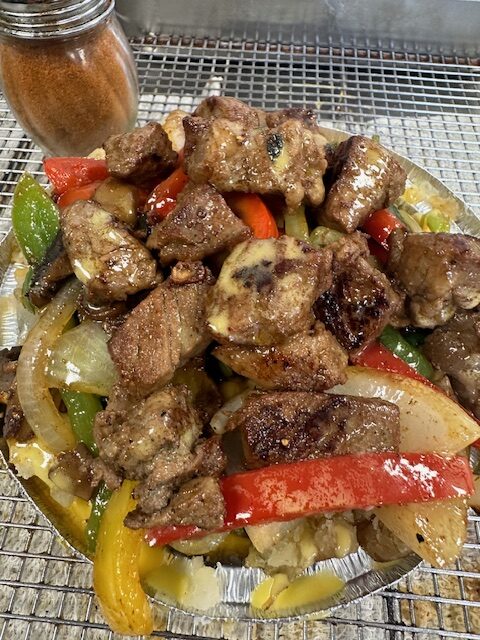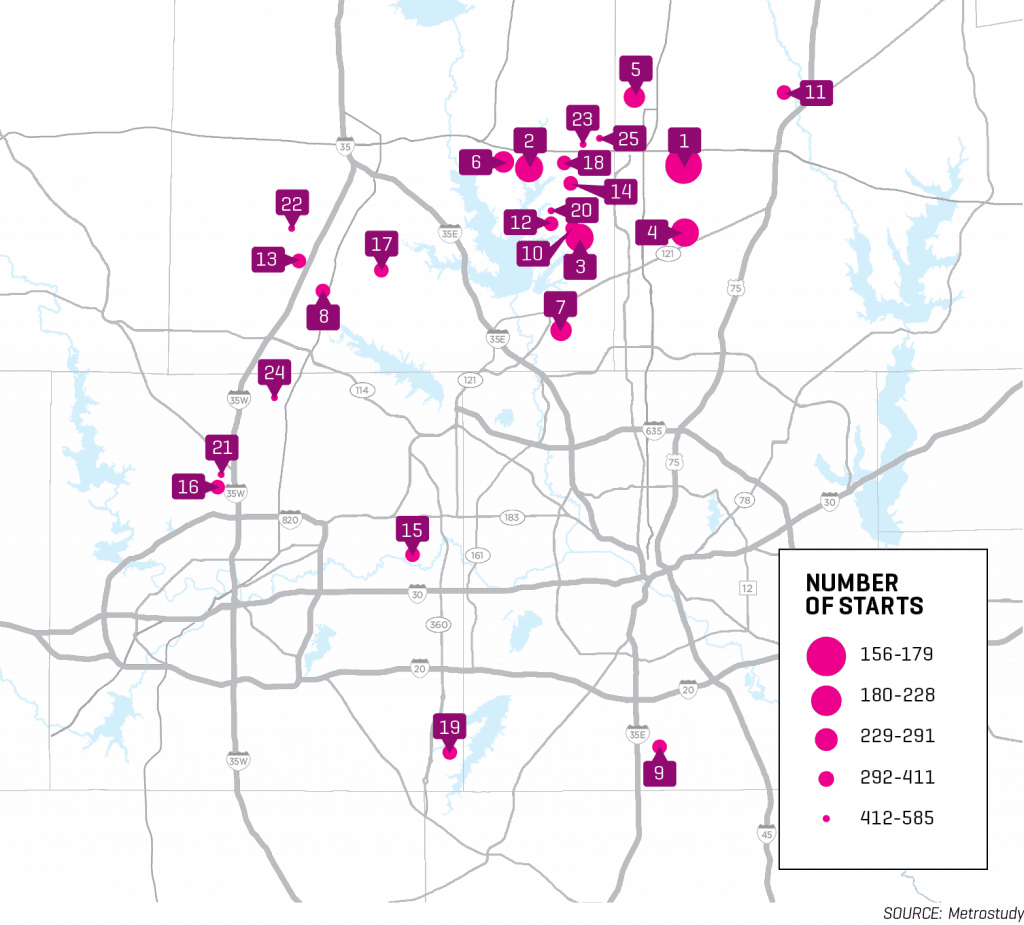When life gives you lemons, make potatoes.
Dallas-Fort Worth has sports bars, wine bars, dive bars … and for those looking for complex carbs rather than alcohol, a potato bar.
“We started in the Frisco Fresh Market, but relocated to a ghost kitchen in South Dallas – we do takeout and delivery from there. We’re looking to expand into Arlington and back towards Frisco/Plano,” says Sheena Marie Scott, founder of The Pot, baked potato bar, who describes herself as a cook, not a chef.
“My son’s the chef,” she laughs, “he even has a YouTube channel called KaiVersations.”
Customers can load up on stuffed spuds Tuesday through Saturday. With choices like The Humbler, on the left; and the Taco-ato, on the right, this is not where you go for a light snack.



“I want customers to have a great experience every time they come in – that means not spending a lot to get a lot.”
The idea for the eatery didn’t hit her like a lightning bolt, it materialized over a few years and has its roots in childhood.
“My aunt Lula, who raised me, taught me to cook. And there were no shortcuts – we made everything from scratch.”
In 2016, JPMorgan moved Scott from Wisconsin to Dallas, but she was part of a lay off in 2018. She moved back to the Badger state for another job opportunity with the company.
“I liked the area and wanted to stay, but a job opportunity came up in Wisconsin, so I went back.”
But not for long. The friendliness of the people, the potential for growth, and the weather compelled her to try Dallas again. She strategized, and in 2020 came back on her own terms.
“I had already started thinking of a long-term plan to start a business; DFW is the perfect place to get in front of a lot of people fast. And I think my child’s father had been sending me subliminal messages for years.”
You see, Scott doesn’t just cook potatoes, she loves to eat them too.
“He’d just roll his eyes and say ‘another potato?’”
Little did either of them know saying yes to the savory spud would lead to saying yes to being a small business owner in Dallas.
“This time I settled in Frisco with my two boys.”
And she opened The POT potato bar in 2021.
In her downtime, she’s learning to golf, loves entertaining … and visiting Nebraska Furniture Mart. No, seriously.
“(Laughing) yea, I love to just walk around. There’s something I find incredibly relaxing about it.”
As a business owner (something she never imagined calling herself when she was growing up), she wants to use her influence to help create a better quality of life in Southern Dallas County.
“This area has been labeled a food desert, there’s less economic growth than you see in other parts of Dallas, and fewer employment opportunities. I want to do what I can to turn that around.”
And she wants to do it with a loaded baked potato and plenty of sour cream.

